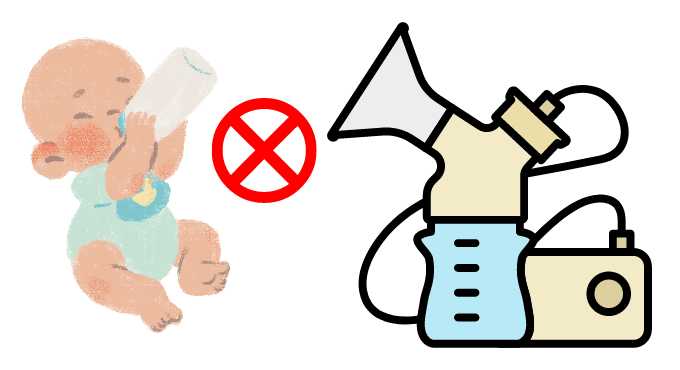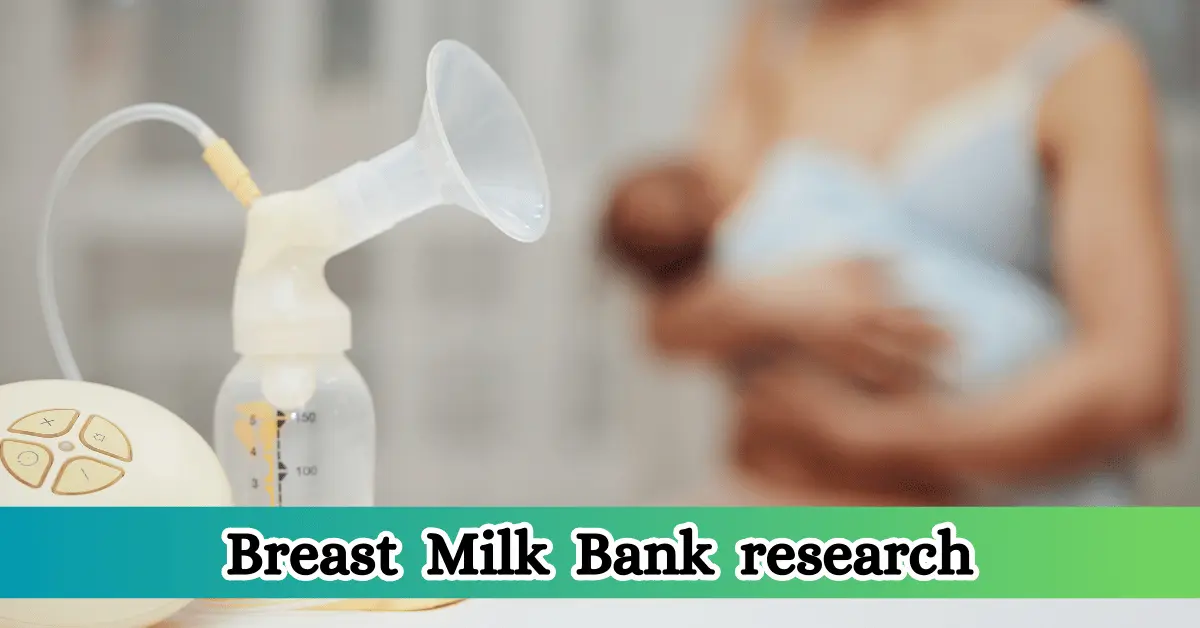Let’s see Breast Milk Bank research in the light of Islam:” After birth, the baby can’t consume any food other than breast milk to protect and nurture his life, so after conception, a woman’s breasts naturally release milk for the baby.
The love and affection born in her heart motivate her to breastfeed her baby. Islam also allows a woman other than the mother to breastfeed a child who has the status of a foster mother, and the status of a foster mother is the same as that of a birth mother.
If the child loses both the mother and the father, God willing, it is the responsibility of the heirs to arrange for breastfeeding. Therefore, according to Islamic rules and regulations, it is sure that a child can drink the milk of another woman besides his mother during breastfeeding.
Until recently, breastfeeding was the norm. According to this, the child drank the milk of his mother or any other woman directly.
Breast Milk Bank

This new form of modernity has emerged in which human milk banks have been created, where human milk is stored and provided to needy children. When all human organ banks, including eye banks, skin banks, blood banks, semen banks, egg banks, etc., were established in Europe, Malik Bank was also established.
In Malik Bank, milk was collected from women who donated or donated valuable milk. It was protected from germs and sealed in packets.
When doctors see a baby being overweight, malnourished, or unable to develop properly due to another illness, they recommend breast milk. Sometimes, his own mother did not have milk at that time, and there was a lack of cooperation in the social situation. She started setting up a milk bank to deal with such a situation.
Breast Milk Bank research in the light of Islam
It was undoubtedly a big step in medical science, and the doctors who started it must have started in the service of humanity. If, for some reason, the baby cannot get breast milk, then the baby is rarely found in the breastfeeding family because no woman likes to be bound to another’s baby.
In Eastern countries, and especially in Islamic countries, usually, one or the other woman from the family is ready to breastfeed such a child, and it is easily available, so the need for Malik Bank is not felt much here. However, the requirements of Islamic law were quite different, which raised questions.
We are debating whether establishing Malik Bank is permissible or prohibited in Islam. If it is acceptable, what conditions are required? It is in Islam that when a child is breastfed by a woman at the age of breastfeeding, that woman becomes his mother.
And that child cannot marry her, and similarly, the children of that woman are her sister and brother Will become, and can not marry them.
The problem is that if a child drinks milk from Malik Bank, how will he know which woman he has breastfed? Similarly, if the milk of two or three women is collected in one packet, then which woman will become his mother, or will all women become mothers?
Arguments of Breastfeeding Milk Bank Proponents

Having Permission For Selected Partial Ijtihad
This is a modern requirement in which the selected details are allowed to the contemporaries as they are better aware of their problems and are given some authority over them.
Also, the door of Ijtihad is open and not closed; it is open only for the jurisprudential solution of modern problems.
Doubts Do Not Prove The Shari’ah Rules
Doubts do not prove the Shari’ah rules. The jurisprudential rule is that certainty cannot be dispelled by doubt. There are many doubts about providing milk to children through Malik Bank.
Therefore, according to most jurists, if breastfeeding is not proven in case of doubt, then it should not be proven to be haraam.
A Fatwa Will Be Issued On Ease Instead Of Hardship
Hazrat Ayesha says that whenever the Hazrat Muhammad (PBUH) was given authority over two things, he chose the easy as long as it was not a sinful act. The rules of jurisprudence are derived from this hadith. When the matter becomes narrow, it will be expanded.
Needs allow illegitimate matters. Therefore, the same principle should be followed here: the job of the jurists is not to create violence but to grant leave.
Collecting The Milk Of Two Women In One Pack
Given this situation, we are faced with the problem of whether a baby is breastfed from a packet containing the combined milk of two women.
In the case of the Hanafis and Maliki jurists, breastfeeding will be proved only by the woman whose milk is the most abundant. Only Hanbali jurists will prove breastfeeding for all women whose milk was included in this packet.
Opponents Of The Breast Milk Bank & Their Arguments

- They are most feared in Islamic society because it is a religious issue, and that is to collect milk from many mothers, mix it, and then give it to the child in a situation where there is no knowledge of these women. Which woman breastfed the baby?
- When such ignorance arises, it is feared that tomorrow, the foster brother will marry his foster sister or his foster aunt, foster aunt. Hazrat Muhammad (PBUH) said that haraam by lineage is also haraam by breastfeeding.
- Even in countries with high technical capabilities, such as the United States, storing milk in a milk bank is a source of great inconvenience. And it costs a lot of money. This kind of stored milk becomes a victim of microbes. Some of its properties and qualities are lost due to decomposition, which occurs due to microbes or over time. In other countries, the situation is even worse.
- In developing countries, the problem is even more significant in the case of Malik Bank because the technical capabilities and the standard of cleanliness are not so good as to protect the milk from micro-organisms and decomposition for a long time. It isn’t easy.
- The Milk Bank may have had some success in Europe and the United States. Still, in Egypt and Pakistan, they are not needed because physical breastfeeding is not difficult here, as 85% of mothers breastfeed their babies themselves. In the rest of the cases of breastfeeding, natural milk is available. The few that are left have access to adequate artificial milk or other alternatives to breastfeeding.
- He pointed out that Malik Bank’s trade would enable the poor to engage in its trade, and poor mothers would start giving their milk to the children of the rich instead of their children.
- Even if it is allowed to be established by legalizing it, it would be a wrong decision and a social riot. There will be many epidemics in this riot-ridden society. They will be deprived of their natural right to buy and sell human milk, as a result of which many mothers will misuse it.
- As is currently the case with the sale and purchase of blood and the illegal sale and purchase of other human organs. After all, mothers are the only group in the world that will be involved in selling milk for many of their material needs.
- In this way, the germs and viruses of many mothers’ diseases will come together in packets and spread from place to place, making it difficult to control the diseases.
Conditions regarding the storage of Human Milk
To our knowledge, it is essential to consider a few conditions regarding the storage and provision of human milk:
- Covered and safe arrangements should be made for milk production without male interference.
- Milk should not be bought or sold; it should be done based on purely human compassion and welfare. Setting up a milk bank to buy and sell human milk is not permissible.
- Every woman’s milk should be kept separately, and disposable devices should be used so that special arrangements can be made for the prohibition of breastfeeding because even breastfeeding is forbidden, like blood relations.
- The woman whose milk the child will drink will become haraam like her foster mother, her husband, the child’s foster father, her son’s foster brother, her daughter’s foster sisters, and other relatives, as well as kinship. In this process, the institution must remove the prohibition of breastfeeding so that the sanctity of relationships is not violated and the distinction between halal and haraam is maintained.
- Efforts should be made to breastfeed a child with the same woman so that at least a foster relationship is established. If another woman is also breastfed, it should be recorded in the child’s record, even if she has been breastfed only once.
- The complete record of the child and her family should be provided to the woman whose milk is being fed. Similarly, the complete record of the woman and her family should be provided to the child who the said woman breastfed.
Conclusion
It is permissible to stockpile human milk and feed it to needy children, taking special care of the above conditions.
See From Us:
